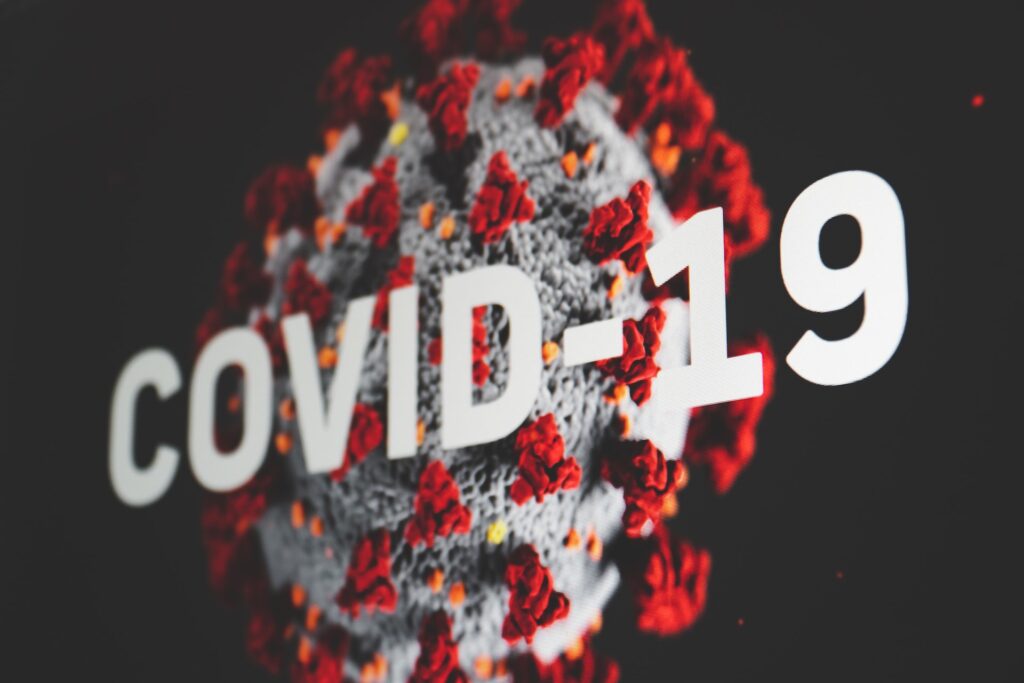Covid-19 infections causing extensive hair loss
The problem is definitely worse in women
The COVID-19 pandemic has caused a lot of damage to people’s lives, not just in terms of physical health, but also mental and emotional well-being. In addition to the typical symptoms of fever, cough, and shortness of breath, hair loss has been reported as a less common symptom of COVID-19. While hair loss is a common problem, COVID-19-induced hair loss can be particularly distressing for women, who are more likely to experience it than men.

The exact mechanism by which COVID-19 infections cause hair loss is not yet fully understood. However, it is believed to be related to the way the virus affects the immune system. The virus triggers an inflammatory response in the body, and this can cause damage to the hair follicles. Hair loss can also be a side effect of some medications used to treat COVID-19, particularly antiviral drugs.
What does hair loss after Covid look like?
Hair loss caused by COVID-19 infections typically manifests as diffuse thinning of hair across the scalp. The hair may also become brittle and dry, and break off easily. Hair loss can occur at any time during or after a COVID-19 infection, and it can last for several months.
If you are experiencing hair loss after a COVID-19 infection, it is important to seek medical advice. A doctor will examine your scalp and hair, and may also order blood tests to check for any underlying medical conditions that may be contributing to your hair loss. If you are taking medications for COVID-19, your doctor may also consider switching to a different medication or adjusting your dosage to minimize the risk of hair loss.

How to treat hair loss caused by Covid-19 infections
There are several treatment options for hair loss that’s linked to Covid. The treatment will depend on the underlying cause of the hair loss. If the hair loss is related to inflammation and damage to the hair follicles, your doctor may recommend anti-inflammatory medications to help reduce the inflammation and promote hair growth. In some cases, topical corticosteroids may also be prescribed to reduce inflammation in the scalp.
Hair loss caused by medication side effects may be temporary and may resolve once the medication is stopped. In some cases, however, hair loss may be permanent. If this is the case, your doctor may recommend hair transplantation surgery, where healthy hair follicles are transplanted from one area of the scalp to another.
How common is Covid-19 hair loss?
In a recent study by the National Institute of Health (NIH), it was determined that hair loss from Covid 19 infections is far from uncommon. Their study looked at how the common symptoms of Covid-19 infections — fever, respiratory and pulmonary issues and the like — increased the risk of hair loss. Of the 198 people studied, 48 complained of hair loss post-Covid infection. That basically boils down to the realization that one in every four Covid-19 patients are likely to experience hair loss.
The odds are not good, unfortunately.
Most of the cases of hair loss were diffuse, meaning the loss was spread over the scalp and not concentrated in one area.
A direct quote from the study:
After discharge, all patients were interviewed about hair loss. Of these patients, 79 were male (39.9%), and 119 were female (60.1%). The age ranged from 18 to 85 years old. 48 patients showed hair loss. Telogen effluvium (TE) is one of the consequences of the COVID-19 pandemic. COVID-19 leads to more medications and stress situations, which trigger TE.
It’s not that these challenges are new. After the devastating 1918 flu, many people experienced extensive and diffuse hair loss that most often lasted nine weeks. Back then, they experienced many of the issues we have today with Covid-19 — increased stress and the use of medications that weren’t normally in play for most people. The good news is — if you can call it good news — that hair loss in people with Covid-19 infections doesn’t last that long.
You can read more about the NIH study on covid-19 hair loss here.
Other researchers aren’t quite so optimistic about the impact. They suggest that most cases of hair loss that were the result of a Covid infection will begin between two and three months after infection, and that it most often resolves within six months, though it could take a year or more for the hair to regrow.
Studies conducted by other groups have reached similar conclusions. In one, they estimate that up to 30 per cent of people who experience severe cases of Covid-19 infection will also have to deal with sudden and stressful hair loss as they recover. Earlier this year, National Public Radio did an interview to explore the impact of hair loss on suffers. It’s definitely worth a listen.
Much of the information cited above is confirmed in an article that appeared in Nature Magazine. The authors there suggest that people who have had a Covid-19 infection are four times more likely to deal with hair loss.
Daily actions to prevent or reduce hair loss that results from a Covid infection
In addition to medical treatments, there are several lifestyle changes that can help promote healthy hair growth. Eating a balanced diet that is rich in vitamins and minerals, particularly vitamin D and iron, can help support hair growth. Regular exercise can also help improve circulation to the scalp, which can promote hair growth.
Finally, it is important to take steps to reduce stress and anxiety, as these can contribute to hair loss. Practicing relaxation techniques, such as meditation or yoga, can help reduce stress levels and promote overall well-being.
There’s no doubt that hair loss from Covid is a distressing condition, but it is treatable. If you are experiencing hair loss after a COVID-19 infection, it is important to seek medical advice to determine the underlying cause and appropriate treatment. With the right treatment and lifestyle changes, you can restore healthy hair growth and improve your overall well-being


